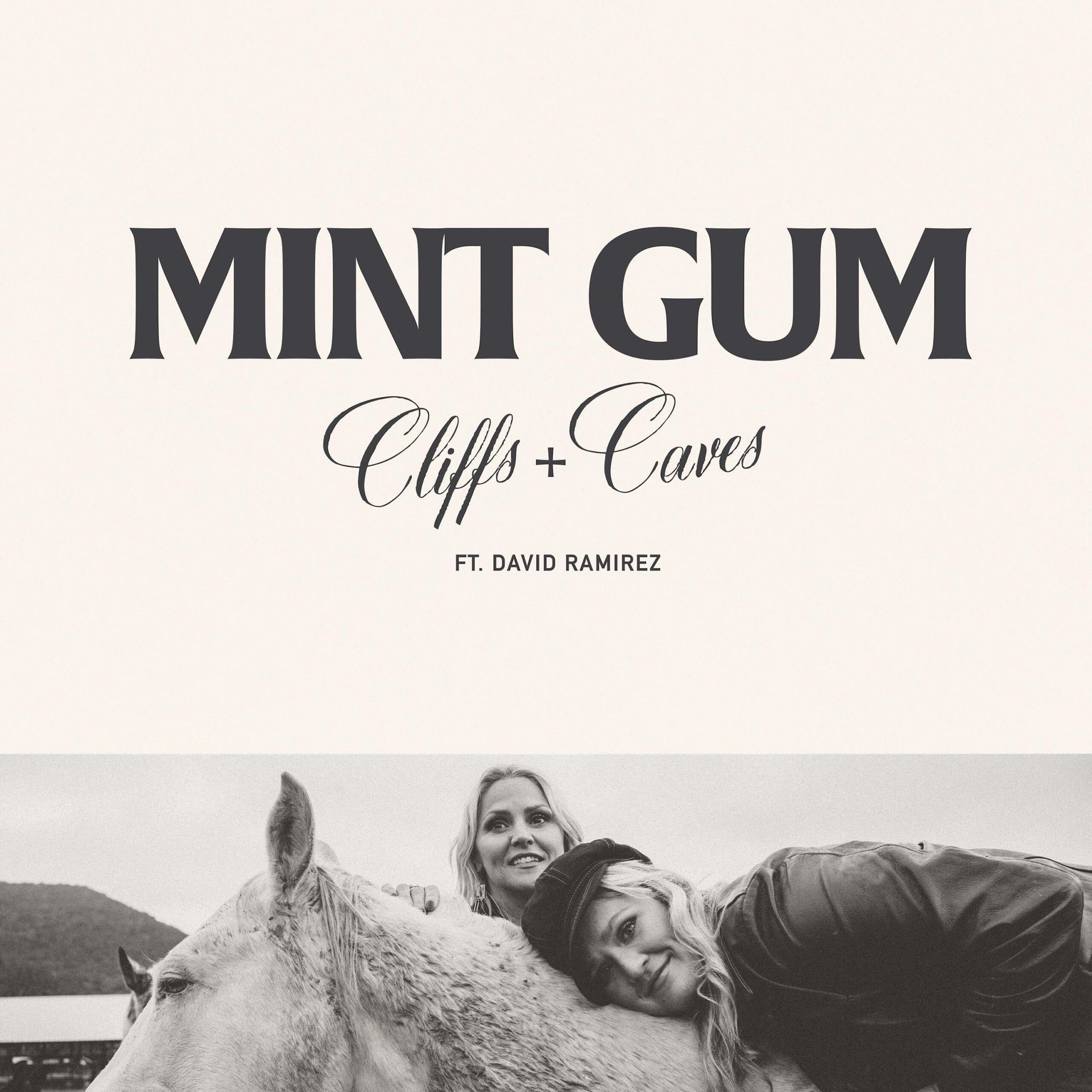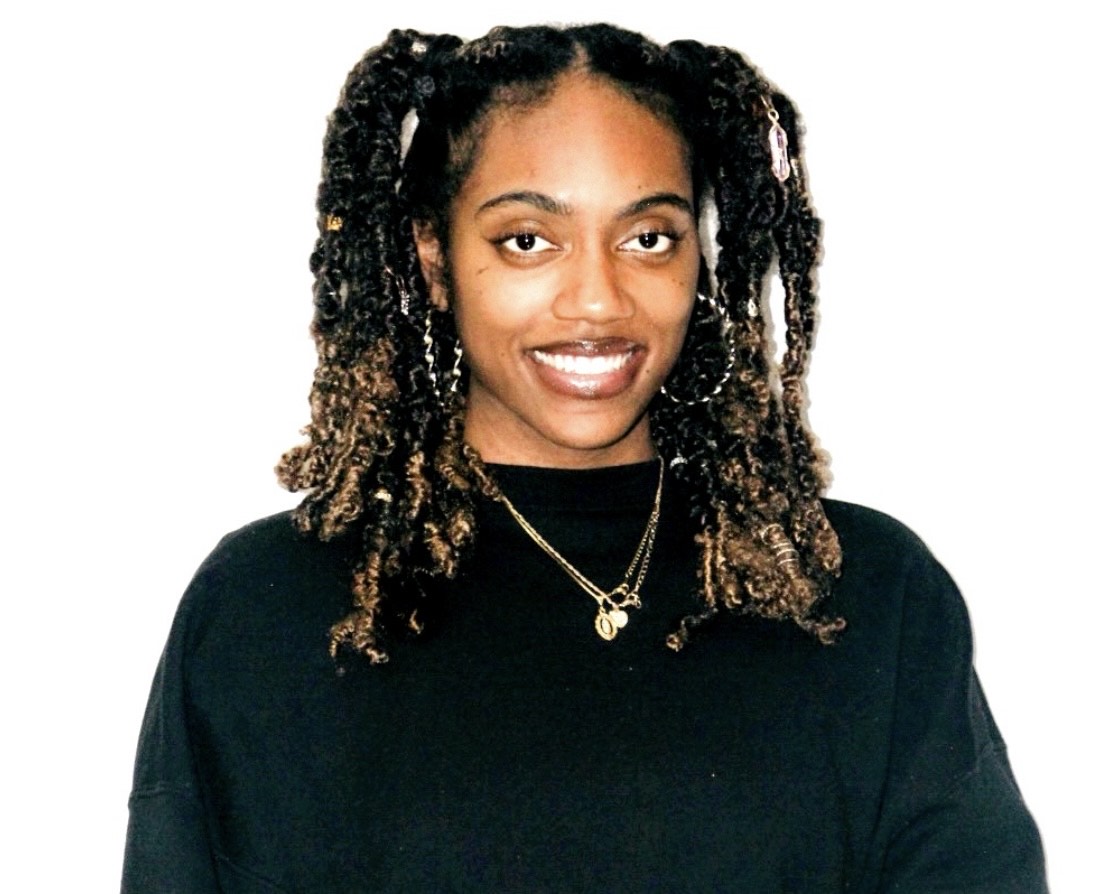We Speak Music
Cliffs + Caves Release Thought-Provoking Single “Mint Gum” Which Grounds Listeners in Reality

The Alt-Americana Track Delivers a Powerful Message to Find Solace in Tangible Relationships in a World of Misinformation and Doubt
Cliffs + Caves transports listeners to a spacious soundscape in their newest single “Mint Gum,” featuring David Ramirez. With an alt-Americana sound that is uniquely their own yet reminiscent of Lake Street Dive and Phoebe Bridgers, the duo’s new single is an emotional track with a powerful message. Amidst a vast expanse of misinformation and conspiracy theories, listeners can ground themselves in a tangible reality with “Mint Gum.”
At the core of the song is a profound message that expresses deep concern about the oversaturation of misinformation in our time. In “Mint Gum,” Cliffs + Caves explores the impact of conspiracy theories in today’s society and offers a heartfelt solution. It can be challenging to distinguish fabrication from fact. As doubt persists, it becomes even more difficult to discern what to build our personal beliefs around. However, the riveting track encourages listeners to find solace in the tangible relationships they have with their loved ones. The song serves as a powerful reminder that the love, care, heartbreak, sympathy, sadness, and joy we have for each other is what bond us together and creates concrete connections.
“Mint Gum” showcases the seamless vocal interplay of Cliffs + Caves and David Ramirez, whose distinct styles blend effortlessly to deliver the song’s thought-provoking lyrics. A mesmerizing fusion of retro keyboards, punchy drums, atmospheric leads, and expressive guitars gives the song a cinematic quality that is both captivating and evocative. The production quality of “Mint Gum” is an indication of the band’s commitment to creating an engaging listening experience, with every instrument and melody manufactured to enhance the overall sound of the track.
- open.spotify.com/album/4bbkg2cCdBGFKGoxRn8ixi?si=yZ-n-oYlT4evvWa-1pnwDQ
- cliffsandcaves.com
- www.youtube.com/@cliffsandcaves2211
- www.instagram.com/cliffs_and_caves
ABOUT
Cliffs + Caves, the mother-daughter duo of Lindsey and Claire Justice, unabashedly share their deeply personal and relatable stories through songs that resonate with listeners of all generations. Best known in their home state of Texas for their unique blend of Contemporary Americana music, the pair showcases the musical ingenuity that is created when artistry runs in the family with intimate lyrics lilting intrinsically over smooth musical progressions. Their previous discography includes their 2017 debut EP, Hold On (recorded with Grammy-nominated producer Jamie Candiloro (Ryan Adams, R.E.M., The Eagles) and featuring performances by legendary Willie Nelson’s harmonica player, Mickey Raphael) and sophomore EP Capsize (produced by Chris Jacobie (Penny and Sparrow, Jarrod Dickenson, Duncan Fellows). The original songs are a team effort with the duo individually contributing to the mastery of their lyrics and melodies. Moreover, twenty-year-old Claire being a multi-instrumentalist, not only composes the music for the tracks but also bestows a knack for songwriting. Their newer music further explores the duo’s ability to portray life through lyrics as they evolve into a more alternative Maggie-Rogers-esque sound while still maintaining their Americana roots and drawing inspiration from benchmark artists like Phoebe Bridgers, Lake Street Dive, and Patty Griffin. With a love for writing songs and performing them live, Cliffs + Caves is thrilled to be releasing new music which they will be playing at a variety of upcoming shows in 2023!
We Speak Music
An Interview with Camari Knox

Your book’s title is striking—The Silence of Snow Is So Loudly Deafening. Can you share the meaning behind it and how it frames the emotional landscape of the collection?
To me, snow acts as a blanket over such a chaotic and busy world. It quiets the environment and makes it soft. That is what writing the contents of this book felt like for my world. At the time of writing, I was an extremely emotionally reserved person—and therefore silent—yet my thoughts were still there and frenzied. Collectively, each poem brings together this motif. The concept of my book title acts as a definition for my style of poetry.
You mention that the book was crafted over two decades of self-examination. What prompted you to finally publish these poems now?
By two decades worth, I’m hinting at how my book mirrors my life thus far. The themes carried throughout my poems implicate how I have untangled all of the reality I have experienced as well as brushes on moving forward from the point I was at mentally.
Many of your poems deal with trauma, introspection, and identity. Was writing this collection a therapeutic process for you, or did it serve a different purpose?
Writing this book was absolutely a therapeutic experience! As mentioned in the book, releasing it felt like a healthy sever between who I was in my late teens to who I am now in my early 20s. The contrast in such a relatively short difference in time is a profound turning point. Between writing and editing the book, I was able to feel that mental transformation that can be so easily overlooked and under appreciated.
You describe your work as a mirror rather than a map. What do you hope readers will see in that mirror?
I wanted my book to be less individualized and absolute. I wanted my writing to have a more unlocked perspective so my readers could engage with themselves through the words. This is very intentional. I also wanted the audience to go through a self-realization journey—which is precisely the way I have my chapters set up.
You write for readers who “tough love never really worked for.” How does your poetic voice challenge or redefine traditional ideas of healing and support?
My writing, in this book, is directly illustrative of the most effective help I’ve ever received and for me, that’s the art of receiving a dual-natured love. I appreciate the fact that there are nuances to people in how they digest outside involvement in their lives as well as getting support. In my writing, I found a balance of being blunt and sympathetic which is both a happy and practical medium!
Which poem in the collection do you feel most vulnerable sharing—and why?
Hmm, good question. I’d say the poem I named “For The First Time Ever”; the emotion I wrote about here was a projection of how I thought I would feel in the future. Then, the time came where the future became present and it’s exactly what I experienced. Rereading it was such a profound moment that I will always contemplate. It remains such a stirring piece for me, both then and now. To me, it’s one that transcends time.
As a self-published author, what were some of the challenges you faced in bringing this project to life, and what did the process teach you about yourself as a writer?
I was self-published as it gets and that meant doing every step by myself. From doing research to finding the time to market my book, I felt engulfed in trying to make it as perfect as possible. I believe there’s a weight that comes with being an independent writer by trying to overcompensate for the fact that I didn’t have a full team or even the time to put as much effort in my art as I wanted. There were some aspects of the process that I had to be okay with being average—especially while juggling college work as well. With that being said, my number one challenge was surprisingly formatting the poems. It took a lot of tweaking and even calculating to get my poems in the standard layout that they are in. Trust me, I learned the importance of practicing patience and gained the spirit of perseverance.
You draw inspiration from poets, novelists, and philosophers. Are there specific writers or thinkers who shaped your perspective while writing this book?
Considering I wrote this when I was 18 and in a very vulnerable position, I was impressionable to most literary works. My top inspiration at the time was Robert Wright, he wrote an intriguing book on the evolutionary psychology of humans named The Moral Animal; this changed my outlook on life and jump started my love for philosophical reading. I find myself referring to plenty of concepts I found in that book.
Your work walks the line between silence and noise, repression and truth. How do you approach balancing emotional restraint with emotional release in your writing?
I’d say the restraint comes in the form of not explicitly stating what exactly I have healed from. I simply was not in a place where I would feel comfortable widely sharing the exact details of my trauma, per se. For this book, I wanted to communicate my truth through how I perceived my experiences and the type of person I saw in myself.
Now that The Silence of Snow Is So Loudly Deafening is out in the world, what conversations are you hoping it will spark—either in readers or in the wider literary community?
I’d love to see matters of morality, introspection, and empathy being discussed across all levels—whether that’s internally or externally. I genuinely hope people digest the message of self forgiveness that I conveyed through my writing. I want my readers to know how irreplaceable they are regardless of their past, present, and any future personal conflicts. If one reader can say, “Oh, I’ve experienced this feeling before but hey she got through it—so I can too”, I would undeniably feel immense fulfillment.
-

 We Speak AAU Basketball1 week ago
We Speak AAU Basketball1 week agoFuture Floor General: Savage F.O.E.’s PG Kyan Mains Is Turning Heads On The AAU Circuit
-

 We Speak Track And Field5 days ago
We Speak Track And Field5 days agoShe Doesn’t Chase Medals, She Earns Them: Inside Aniyah Walker’s Drive And Dedication
-

 We Speak Coaches6 days ago
We Speak Coaches6 days agoLockdown Leadership: Inside The Mind Of Jonesboro High School’s Defensive Backs Coach Ced Brooks
-

 We Speak Track And Field1 week ago
We Speak Track And Field1 week agoEvery Step Earned, Every Sprint Fought For: How Parker Duskin Trains, Thinks, And Races Like An Elite Sprinter in the Making



















